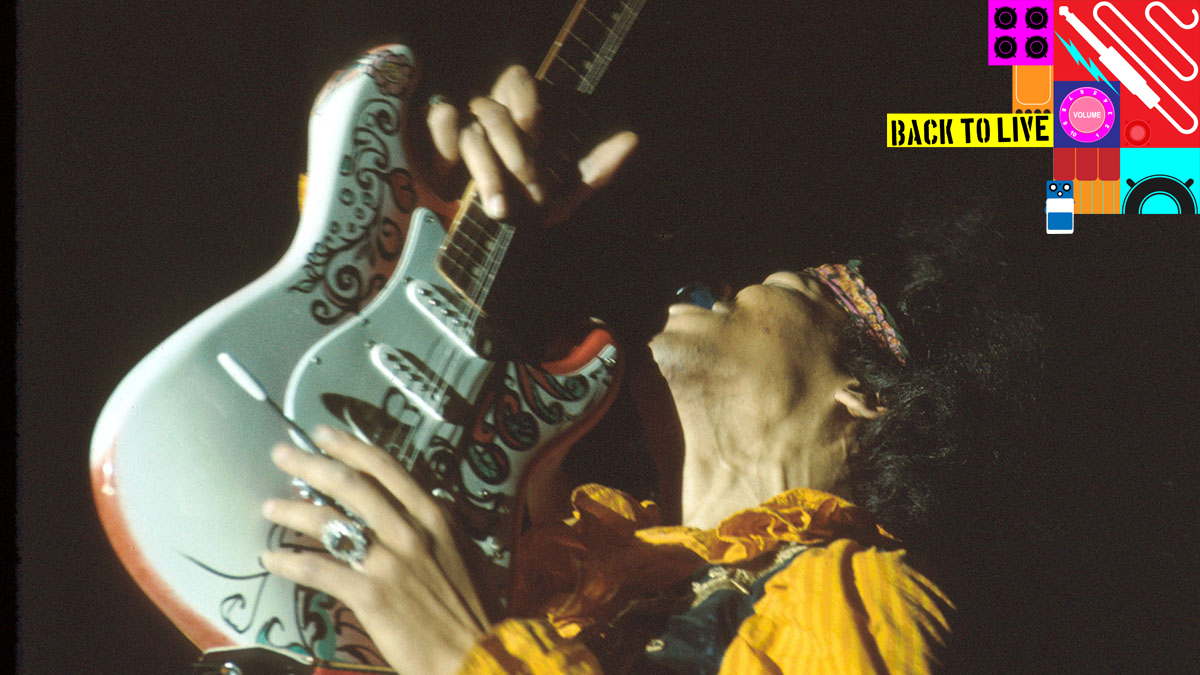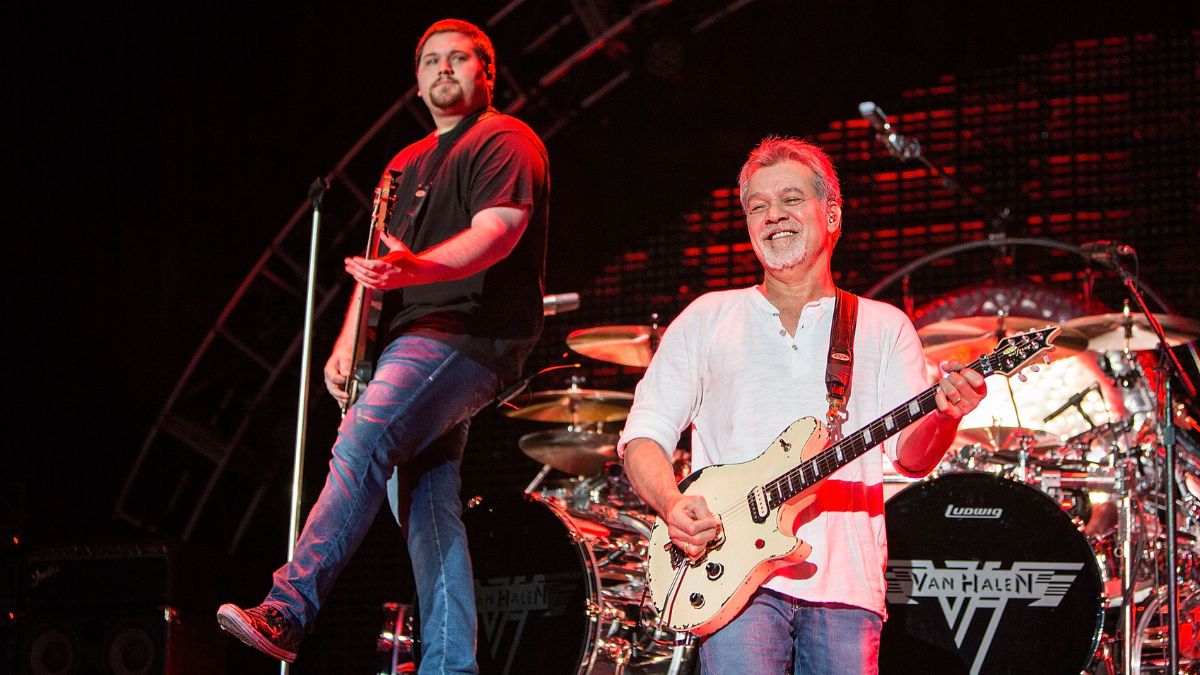What happened to Jimi Hendrix's Monterey Stratocaster?
The iconic Fender Strat and others were set on fire by Jimi's hand, but thereafter their whereabouts are the stuff of legend

BACK TO LIVE: It's probably the most iconic image of Jimi Hendrix, kneeling in ritual over a sacrificial Stratocaster, beckoning the flames upward and pausing only to squirt more Ronson lighter fuel onto the pickguard ablaze.
In an era when oneupmanship and headlines were sometimes more important than musicianship, Hendrix was looking for a way to outdo his axe-smashing rival, Pete Townshend. Jimi is known to have definitely performed the stunt twice, and at least three guitars are part and parcel to the stories.
The first time was March 31, 1967, at the Astoria show in Finsbury Park, London – three months before the fabled June 1967 Monterey Pop Festival. The 1965 Stratocaster was apparently soaked in lighter fuel, and the resulting meter-high flames landed Hendrix in the hospital with burns on both hands.
That charred guitar sold at auction for a whopping £280,000 on September 4, 2008. It was a tidy sum but still far less than the $1.8 million fetched for Hendrix’s Woodstock Strat.
Some controversy still surrounds the Astoria guitar, which is currently owned by American collector Daniel Boucher, with some who believe the actual Strat was the sunburst Fender given by Hendrix to Frank Zappa at the 1968 Miami Pop Festival, now owned and played by Frank’s son, Dweezil.
The Monterey Stratocasters included the black guitar Jimi famously used on Hey Joe and the white/multicolored Strat that he actually set afire during his Wild Thing crescendo
There’s further evidence that suggests Jimi burned guitars at several other shows prior to the Miami festival and that the Zappa Strat may very well have resulted from one of those performances.
The Monterey Stratocasters included the black guitar Jimi famously used on Hey Joe, reported to be one of his favorites, and the white/multicolored Strat that he actually set afire during his Wild Thing crescendo. The burned guitar sold at auction November 27, 2012, for £237,000.
All the latest guitar news, interviews, lessons, reviews, deals and more, direct to your inbox!
The black guitar was supposedly retained for decades by one of the record label managers and was intended to be offered at a Beverly Hills auction in 2017, but it was ultimately pulled because of concerns over its authenticity.
Many years after Hendrix’s untimely death on September 18, 1970, Townshend set the record straight on their competitive stage antics, philosophically stating, “For me, it was an act. For him, it was something else. It was an extension of what he was doing.”
